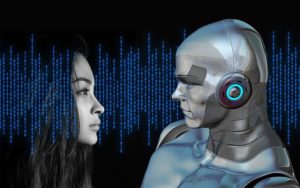 Digitalization is too often viewed as a merely technical development, and the impact on social, political, religious, and economic realms of life are written off or ignored. Here is an example of how the social effects can’t be ignored. It relates to one of our current cultural discussions—the #MeToo moment.
Digitalization is too often viewed as a merely technical development, and the impact on social, political, religious, and economic realms of life are written off or ignored. Here is an example of how the social effects can’t be ignored. It relates to one of our current cultural discussions—the #MeToo moment.
About a week ago, NBC News published this piece on women in medicine and sexual harassment. The issues are profound, and patients could be at risk when human doctors distract each other through this pernicious activity. One story in the NBC News article talks about a woman doctor receiving unwanted sexual comments from an older male surgeon as they worked on a fully anesthetized patient. I don’t know about you, but I wouldn’t want to be the female physician or the patient.
There is a possibility, however, that AI will change these dynamics. So far, AI appears immune to sexual harassment (it’s okay, you can laugh at that one!). Look at some of the advances AI is already making.
“Researchers at the John Radcliffe Hospital in Oxford, England, developed an AI diagnostics system that’s more accurate than doctors at diagnosing heart disease, at least 80 percent of the time.”
https://futurism.com/ai-medicine-doctor/
When your professional colleague is an AI computer, the odds of sexual harassment would seem to go down precipitously—at least in the diagnostic room, the operating room, or the treatment room. More to the point, as AI takes on more of this high end work, professional roles are likely to change, and with them, many of the power dynamics associated with those roles.
For example, what if the mentor of the young female resident is no longer a senior male surgeon, but rather an observing AI providing feedback on proper technique? Or, what if the new clinician confers not with a senior physician at the clinic, but rather an AI system to confirm her diagnosis? These changes intrinsically disempower the senior-to-junior professional dynamic, at least in key professional situations. And when that dynamic is also submerged in male-to-female dynamics, that disempowerment is also liberating.
Digitalization of the economy, and in this case the application of AI specifically, could radically change the power dynamics within professions. More importantly, they will erode in a broader sense the powers associated with the privilege of maleness. In other words, digitalization is eroding that privilege, and as such, it will be defining the social structures of the postcapitalist world to come.